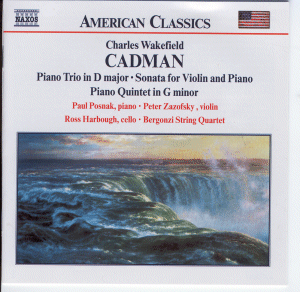 Composer: Umberto Giordano
Composer: Umberto Giordano
Works: Andrea Chénier
Performers: Renata Tebaldi (Maddalena), José Soler (Andrea Chénier), Ugo Savarese (Gérard), Ines Marietti (Bersi), Armando Benzi (Un incredibile), Coro Cetra, Orchestra Sinfonica di Torino della RAI / Arturo Basile
Recording: Recorded 25th May – 2nd June 1953, Turin
Label: Warner Fonit
The opera “Andrea Chénier,” composed by Umberto Giordano in 1896, stands as a poignant emblem of verismo, capturing the turbulent emotions and historical fervor of the French Revolution. Giordano’s lush melodies and dramatic storytelling provoke an intense emotional response, making the work a staple in the operatic repertoire. This recording, featuring the eminent Renata Tebaldi, offers a glimpse into a time when the voices of the leading Italian singers defined the operatic landscape.
The performance is anchored by Tebaldi’s compelling portrayal of Maddalena, whose artistry transforms the role into a vivid character through her rich timbre and emotional depth. Her voice, radiant and full-bodied, excels in the climactic moments, particularly in the aria “La mamma morta.” Here, Tebaldi’s phrasing is infused with a heartfelt intensity that contrasts sharply with the more generalized expressiveness often associated with her contemporaries, such as Maria Callas. The recording captures her ability to build tension through careful dynamic control, showcasing an interpretative maturity that allows the emotional arc of the music to unfold organically.
José Soler as Andrea Chénier, however, presents a mixed picture. His tenor voice possesses a certain freshness, particularly in the upper register, yet his interpretation lacks the dramatic weight necessary to fully engage with the character’s complexities. Soler’s phrasing tends toward the rudimentary, leading to a performance that occasionally feels more like vocal exercise than dramatic portrayal. The famous aria “Come un bel dì di maggio” falls short when compared to the nuanced interpretations of other tenors, such as Franco Corelli or Marcello Giordani. The duet with Tebaldi, while well-executed, reveals a disparity in vocal presence, leaving her to dominate the musical conversation.
Ugo Savarese, as Gérard, navigates the darker emotional currents of his character with varying success. His initial scenes are compelling, yet he resorts to excessive barking in his climactic moments, attempting to evoke malevolence but ultimately revealing a voice that struggles against the orchestral forces. Savarese’s contributions, while occasionally overshadowed, do maintain a certain dramatic flair that suits the context of Giordano’s writing.
The orchestral support under Arturo Basile’s baton is commendable. Basile exhibits a fine understanding of the ebb and flow characteristic of Giordano’s score, crafting an engaging soundscape that allows the singers to shine. The recording quality, for a 1953 production, is surprisingly adept, with a clarity that highlights the orchestral textures, though the bass may feel somewhat light. The engineering strikes a balance between the voices and the orchestra, allowing for a realistic blend that enhances the operatic experience.
While this recording may not supersede more modern interpretations, such as those featuring Caballé or Scotto, it is certainly a valuable artifact from a golden age of Italian opera. The absence of substantial contextual information in the booklet accompanying the recording is a missed opportunity for deeper appreciation, especially for opera aficionados keen on exploring the legacies of the performers involved.
Tebaldi’s commanding presence and the vibrant conducting by Basile serve as the recording’s greatest assets, making this iteration of “Andrea Chénier” a worthwhile listen. The shortcomings of Soler, while notable, do not entirely detract from the overall experience, as the performance is uplifted by the sheer quality of its leading lady. Collectively, this recording stands as a testament to the enduring power of Giordano’s work, offering a compelling invitation to experience the emotional depth and drama that characterize “Andrea Chénier.”


